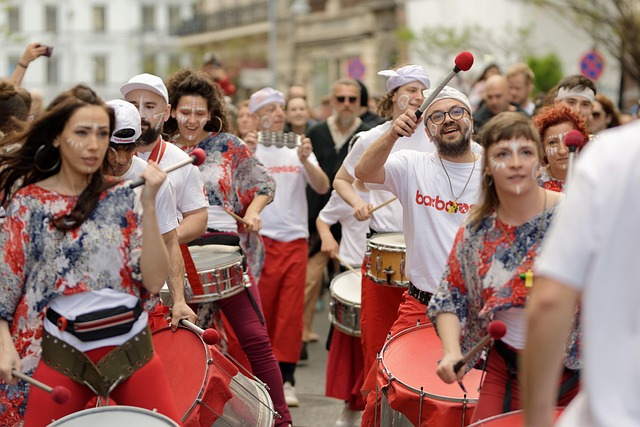Local businesses understand the power of corporate events in building industry connections, but successful planning requires a tailored approach. Event organizers must design unique experiences for diverse sectors, from tech startups to manufacturing, to engage participants and foster community. Key strategies include strategic goal-setting, clear collaboration, adaptability, and contingency planning. By implementing these tactics, coordinators ensure events align with brand identity, strengthen client relationships, and encourage positive word-of-mouth within the local business network. Measuring success through feedback, KPIs, and quantifiable metrics is crucial for refining future events and enhancing community engagement.
“In today’s competitive business landscape, corporate events play a pivotal role in fostering connections, boosting morale, and enhancing brand visibility. For local businesses aiming to make their mark, expert event coordination is essential. This comprehensive guide delves into the heart of successful corporate event planning, tailored to meet the unique needs of local enterprises. From understanding community dynamics to implementing strategic strategies and measuring impactful results, we explore key aspects that contribute to memorable event experiences.”
- Understanding Local Business Needs for Corporate Events
- Key Strategies for Successful Event Coordination
- Measuring Success and Enhancing Future Events
Understanding Local Business Needs for Corporate Events

Many local businesses understand that corporate events are a powerful tool for strengthening relationships with clients, partners, and employees. However, planning such events requires a deep understanding of the unique needs and challenges faced by each business. Event planning for local companies often involves creating experiences that cater to specific industries, from tech startups to traditional manufacturing firms.
By tailoring events to these distinct needs, organizers can ensure they resonate with attendees. For instance, a tech conference might focus on innovative solutions and networking opportunities, while a community-oriented event for a retail business could emphasize local suppliers, sustainability, and customer engagement. This personalized approach not only makes the event more successful but also fosters a sense of belonging and loyalty within the local business community.
Key Strategies for Successful Event Coordination

Successful event coordination for local businesses hinges on a few key strategies. Firstly, understanding the unique goals and target audience of each client is essential. This involves detailed planning, from defining objectives to tailoring experiences that resonate with attendees. A well-defined agenda, curated themes, and engaging activities are vital to keeping guests interested and ensuring the event aligns with the company’s image.
Additionally, effective communication and collaboration with all stakeholders—from vendors to venue staff—are crucial. Timely updates, clear instructions, and open lines of dialogue help prevent missteps and ensure a seamless experience for both clients and participants. Flexibility is also key; being prepared to adapt plans based on real-time feedback and unforeseen circumstances allows event coordinators to deliver exceptional results, fostering strong client relationships and positive word-of-mouth for future events.
Measuring Success and Enhancing Future Events

Measuring success is a vital aspect of event planning, especially for local businesses looking to create memorable experiences that resonate with their target audience. By setting clear objectives and implementing effective evaluation strategies, event organizers can assess the overall impact and effectiveness of each gathering. This involves collecting feedback from attendees, analyzing key performance indicators (KPIs), and quantifying metrics such as attendance rates, engagement levels, and return on investment (ROI). With these insights, businesses can identify what worked well and pinpoint areas for improvement, ensuring future events are even more successful in achieving their intended goals.
Enhancing future events is an ongoing process that relies heavily on post-event analysis. Event planners can leverage the data gathered to refine strategies, improve logistics, and tailor experiences to better suit the needs and preferences of their audience. This may include adjusting timing, refining themes, or exploring new venues based on feedback and performance metrics. By continuously iterating and optimizing, local businesses can elevate their event planning capabilities, fostering stronger connections with their community and driving meaningful engagement for years to come.
Corporate events play a pivotal role in fostering business relationships and enhancing brand visibility. By understanding local business needs, implementing strategic coordination techniques, and measuring success through key performance indicators, event planners can deliver exceptional experiences that drive results. Optimizing event planning for local businesses involves a nuanced approach, from tailored logistics to innovative strategies, ultimately contributing to their growth and community engagement. This structured process ensures that each event becomes a valuable asset, leaving a lasting impression and paving the way for future collaborations.
